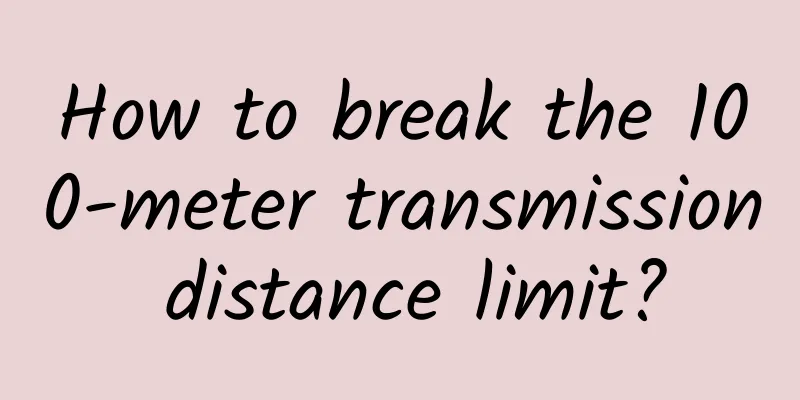Are the price increases for mobile phones and broadband services caused by 5G construction?

|
Over the past year, mobile phone charges have increased, and broadband charges have also increased. The broadband initial installation fee, which has remained unchanged for many years, has returned to the historical stage, which has made many netizens sigh: You promised to increase speed and reduce fees, but you openly raised the price. Why? A careful netizen made a comparison. In 2018, the cheapest 4G package was only 8 yuan per month, and 29 yuan could be used to apply for a 4G unlimited data package with 10G traffic. Now, all 4G unlimited data packages have been removed from the shelves, and the cheapest 4G package starts at 18 yuan. In some areas, 4G packages start at at least 28 yuan, and in some areas they are even higher. In addition to the price increase of mobile phone packages, the various charges for broadband services are also increasing. For example, in the area where I live, China Unicom's 200M broadband package cost 480 yuan a year a few years ago, but now it costs 600 yuan a year. More importantly, there was no initial installation fee for adding broadband before, but now there is an initial installation fee for broadband services. According to the description on China Unicom's official website, a 200M broadband requires a 200 yuan equipment commissioning fee. If you apply for broadband and IPTV services, the equipment commissioning fee is 320 yuan. In fact, the broadband equipment commissioning fee charged by China Unicom is equivalent to the cost of renting an optical modem and an IPTV set-top box. After the broadband is disassembled and the equipment is returned to the operator, the initial installation fee can be refunded. However, the three operators previously did not charge equipment commissioning fees for new broadband installations. For users of 4G converged packages, there is no need to pay any fees for new broadband installations. Optical modems and IPTV set-top boxes are provided free of charge and do not need to be returned after disassembly. A deposit of about 100 yuan is required for a single broadband product. In just over a year, the mobile phone and broadband charges of the three operators have risen together. This is by no means accidental. When talking about the reasons for the increase in mobile phone and broadband charges, many netizens believe that the high cost of 5G construction has led to the increase in mobile phone and broadband charges. Indeed, in the past year, the three operators have invested hundreds of billions of yuan to build 5G networks, but this is not the reason for the increase in mobile phone and broadband charges. People familiar with the operator system know very well that it is an indisputable fact that the cost of 5G construction is very high, but 3G and 4G networks are calculated separately. In other words, no matter how large the investment in 5G network is, it will not affect the operator's 3G and 4G network operation strategy. The reason why the mobile phone and broadband charges of the three operators have increased is an adjustment after ending vicious competition. After China Unicom launched the Ice Cream unlimited data package in 2017, the three operators launched a round of fierce competition for unlimited data packages. According to feedback from netizens from all over the country, around 2018, the lowest unlimited data package was only 19 yuan, including 10G high-speed data and 300 minutes of domestic calls. If you add a 200M broadband and IPTV service, it will cost another 10 yuan per month. This 4G broadband integration package can be said to be very cheap. For operators, a 4G converged package of 29 yuan per month, including 10G high-speed traffic, a 200M broadband and an IPTV service, is already a loss. Once users leave the network, the operator will suffer a great loss. You should know that the equipment cost of the optical modem and IPTV set-top box is more than 400 yuan, plus the marketing cost and broadband installation and debugging cost, conservatively estimated to be around 800 yuan. On the one hand, the price of 4G unlimited data packages continued to hit new lows, and on the other hand, there was the risk that users would leave the network at any time. The vicious competition affected the profits of the three operators. In the end, the three operators shook hands and unified the tariffs, which was the real reason for the price increase of mobile phone and broadband services. |
Recommend
Let’s talk about gRPC that you don’t know today
Hello everyone, I am Zhibeijun. It is the last da...
[Black Friday] BandwagonHost offers 10% off on all items, starting at $44.9 per year, CN2 GIA line 10Gbps bandwidth optional
Bandwagonhost has released a discount code for th...
API Gateway Performance Comparison: Nginx vs. Zuul vs. Spring Cloud Gateway vs. Linkerd
API Gateway The reason for the emergence of API g...
6G! China Mobile and Nokia renew strategic cooperation agreement
Zhongguancun Online News: China Mobile and Nokia ...
Zgovps: $16.9/year-AMD EPYC 7402P/2GB/25G SSD/2TB/40G defense/Netherlands data center
Zgovps is a new Chinese hosting provider that ope...
What does service governance govern? 10 pictures tell you the answer
[[392916]] This article is reprinted from the WeC...
Verizon adds three new regions to its 5G mmWave service
Verizon's 5G millimeter wave network is now a...
Which open source API gateway is better?
[[412862]] Image from Baotu.com Today I will disc...
TCP/IP protocol is used to transmit onions? This article will give you a deeper understanding
1. Computer Network Architecture Layering Compute...
What is a DDOS attack?
introduce DDoS is the abbreviation of Distributed...
Green operation, data center still depends on automation
Power is the lifeline of data centers, and electr...
Tudcloud: Hong Kong VPS with 20% off for monthly payment and 30% off for half-year payment, with options of large bandwidth or unlimited traffic
Tudcloud has released a year-end discount, offeri...
The 2021 work conference of the three major operators: clear goals and firm progress
2020 is destined to be an extraordinary year beca...
An article on learning Go network library Gnet analysis
Introduction We analyzed the Go native network mo...
2022 UBBF | Huawei iMaster NCE promotes FTTR intelligent monetization
[Bangkok, Thailand, October 28, 2022] Recently, t...









